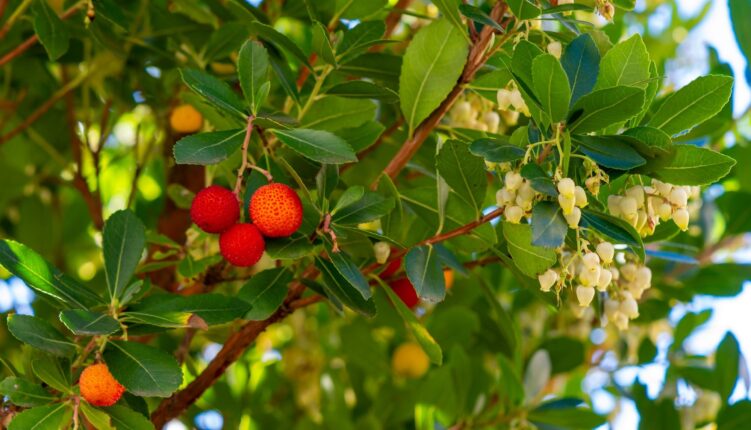Deep within the rugged landscape of Portugal’s hinterland a centuries-old tradition continues, crafting a distinctive spirit known as medronho. This artisanal fruit brandy, aguardente de medronho or more traditionally just medronho, has been a part of Portuguese culture for generations.
Origins
This brandy is distilled from the small scarlet medronho berries taken from the tree known as Arbutus unedo, also known as strawberry tree due to the berry’s appearance.
The trees thrive in the sun-soaked hills and rocky terrains of Portugal. The small, vibrant berries resemble strawberries but possess a unique flavour that is both sweet and tangy.
According to visitalgarve.pt, medronho was first produced in the 10th century by the Arabs in the Monchique area. Production is still artisanal, using a slow-burning fire and copper stills.
The genuine medronho do Algarve (Algarve medronho) is today a quality product, with certified distilleries as well as other by-products such as melosa, a delicious mixture of medronho and honey.
Creating medronho
The traditional method of making medronho involves hand-picking ripe berries during the autumn months. The berries are then cleaned and crushed.
The fermentation process follows, during which natural yeasts transform the sugars in the berries into alcohol. This fermented mash is then distilled, typically using copper alembic stills.
The distillation process is both an art and a science, as the distiller must carefully control temperature and timing to capture the most desirable flavours and aromas while discarding harsh compounds.
Preserving tradition for the future
Due to its strong connection to traditional Portuguese culture, together with the difficulties of regulating such practices in remote regions, medronho was often produced illicitly, with small-scale distillers making it for personal consumption or local trade.
In recent years, there has been a push to bring medronho production into the legal framework. This has allowed for quality control and standardisation, ensuring that the spirit meets safety and quality standards. Legal medronho production also supports local economies and helps preserve the traditional craft.
Efforts to protect this ancient craft include designation of origin regulations and initiatives to educate locals and visitors about medronho’s significance.
In Monchique, Casa do Medronho offers visitors this opportunity to learn more about this spirit and visit local distilleries.
As medronho moves from bootleg to mainstream, its journey reflects the delicate balance between tradition and modernity. So, the next time you raise a glass of medronho, remember that you’re not just tasting a spirit—you’re savouring a piece of Portugal’s history and culture.
Interested in Portugal’s wines? Click here to learn about the country’s rosé wines and here about port.
To find out more about Algarve wines search here and if you are interested in the region’s wine tourism search here.
Image : HJBC | iStock


One thought on “Medronho: Portugal’s fruit brandy”